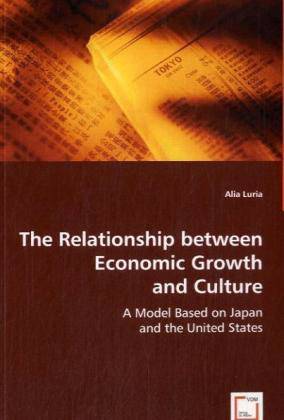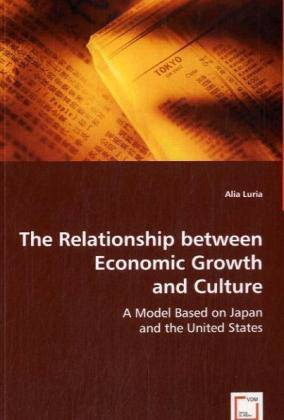
- Afhalen na 1 uur in een winkel met voorraad
- Gratis thuislevering in België vanaf € 30
- Ruim aanbod met 7 miljoen producten
- Afhalen na 1 uur in een winkel met voorraad
- Gratis thuislevering in België vanaf € 30
- Ruim aanbod met 7 miljoen producten
Zoeken
The Relationship between Economic Growth and Culture
A Model Based on Japan and the United States
Alia Luria
Paperback | Engels
€ 63,45
+ 126 punten
Omschrijving
Culture and its effect on economic growth is a topic ofincreasing interest to economists. Past attempts to determinecultural characteristics that correlate with economic growth havebeen problematic due to the difficulty in finding objectivecriteria for measuring culture. This study examines therelationship between culture and economics using different methodswhile comparing Japan and the United States. Method one appliesspecific data to a pre-existing cultural index model. Method twoattempts to determine whether difference in the economic opennessof a nation has any correlation with per capita GDP. Method threeconsiders a game theory model for bargaining between countries withdiffering economic openness. Even though none of these three modelsare able to definitively link specific, measurable effects ofculture to economic growth, this book should help those in thefield of economics who are interested in studying culturalvariables by providing background on existing cultural indices anda basic framework for regression analysis.
Specificaties
Betrokkenen
- Auteur(s):
- Uitgeverij:
Inhoud
- Aantal bladzijden:
- 52
- Taal:
- Engels
Eigenschappen
- Productcode (EAN):
- 9783639068290
- Verschijningsdatum:
- 1/08/2008
- Uitvoering:
- Paperback
- Afmetingen:
- 150 mm x 220 mm
- Gewicht:
- 88 g

Alleen bij Standaard Boekhandel
+ 126 punten op je klantenkaart van Standaard Boekhandel
Beoordelingen
We publiceren alleen reviews die voldoen aan de voorwaarden voor reviews. Bekijk onze voorwaarden voor reviews.








